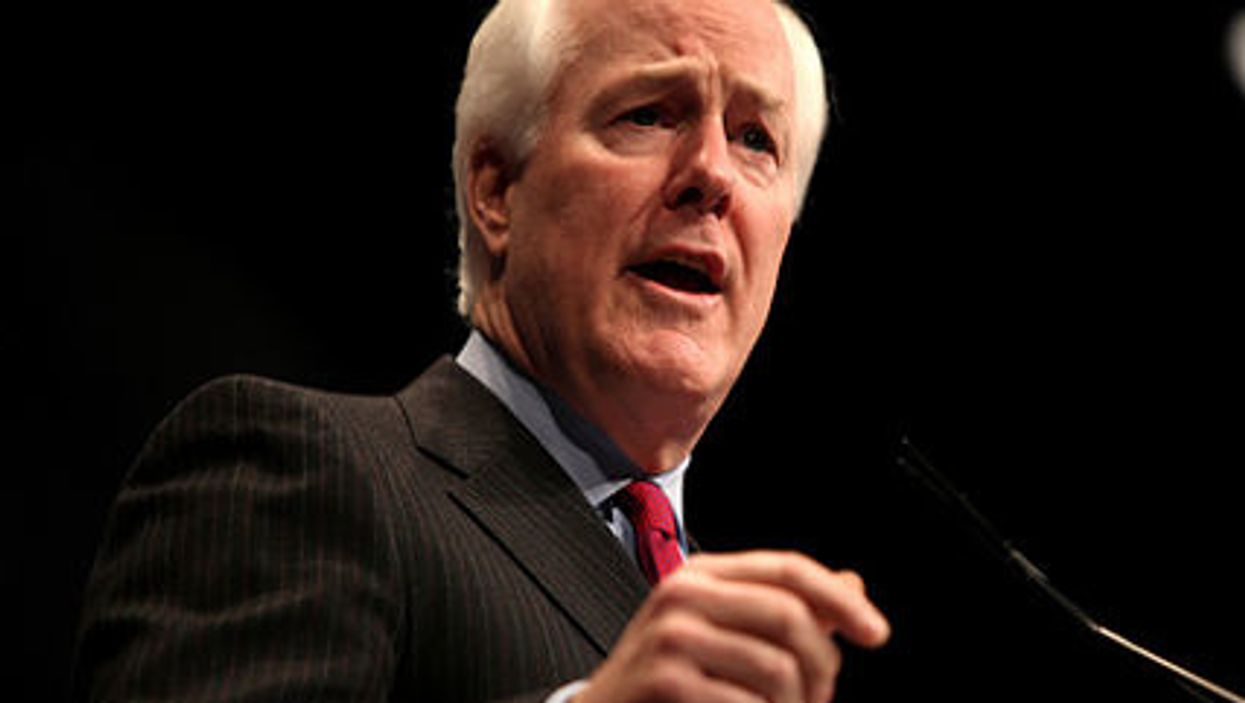GOP Senators See No Reason To Provide Needy Families With Virus Relief

Sen. John Cornyn
A number of Senate Republicans are making their opposition to proposed $2,000 coronavirus relief checks clear — as well as the fact that they don't think Americans really need it.
Donald Trump himself has pushed for the larger checks, accusing Republicans of having a "death wish" for not supporting the idea and for only passing $600 direct payments in the most recent round of COVID relief legislation. In the current iteration, only individuals making under $75,000 and households making less than $150,000 are eligible for the $600 checks.
But Senate Majority Leader Mitch McConnell has stalled the follow-up CASH Act, which would allot $2,000 to qualifying Americans in lieu of the amount previously agreed upon in the House and Senate, regardless of that fact.
According to a Washington Postreport, six GOP senators have followed Trump in voicing support for the $2,000 checks. They include Sens. David Perdue and Kelly Loeffler of Georgia, Lindsey Graham (SC), Marco Rubio (FL), and Josh Hawley (MO). Perdue and Loeffler are notably facing a tight runoff election next week against Democrats Jon Ossoff and Raphael Warnock, respectively.
But many others have openly condemned the idea of larger payments, suggesting in some cases that Americans don't actually need the money.
On Wednesday morning, Sen. John Cornyn took to Twitter to complain that the CASH Act did not sufficiently target those who have lost wages.
"Under the CASH Act (the House's $2,000 bill), an individual making $100,000 will get a $750 check. It completely phases out for those making more than $115K," Cornyn tweeted. "There doesn't seem to be a requirement that the recipient actually lost any income due to COVID-19."
He complained that the $2,000 checks would add billions to the cost of COVID relief.
"Remind me, why would we want to borrow money from our children and grandchildren to send a check to someone who has not suffered a financial hardship related to #COVID19?" Cornyn wrote.
Sen. Ron Johnson (R-WI) also claimed that sending Americans $2,000 relief checks would be "mortgaging our children's future."
"Without targeting, 2,000/person payments will add $464 billion to the debt burden we are placing on our children. By effectively targeting relief, we can help those in need and minimize how much we are mortgaging our children's future," he tweeted.
Johnson also said he was concerned the earlier round of stimulus checks was going to people who still had jobs.
"At the worst point of the COVID recession, total employment was down 25 million, but we sent relief checks to 166 million people. If we're going to send out more checks, shouldn't we target help to those who truly need it?" he tweeted.
On Tuesday afternoon, Sen. Pat Toomey (R-PA) appeared on CNN to slam the proposed increase, saying they were a "very bad idea".
"I'm not going to [support $2,000 checks] because I think it's a very bad idea," he said. "We're talking about sending checks, the vast majority of which will be going to people who have had no loss of income whatsoever. That's just a fact. How and why does that make any sense at all?"
He claimed that even the merits of the original round of stimulus checks in the spring were "dubious," but noted that "we're in a very different place than we were in March," when the Senate passed the CARES Act.
"The economy grew at 33 percent last quarter," Toomey said. "We've got very acute problems within certain employment groups … but we do not have a global macro economic depression underway at all. So it makes no sense to be sending this out to everybody who has a pulse."
Toomey failed to take into account that even a 33 percent increase does not put the economy back to pre-pandemic levels. Gross domestic product is still down by 3.5 percent from highs before the pandemic, according to Market Watch — a net loss of $670 billion in total economic activity.
"To put this in context, a 3.5% decline in real GDP would still be the third worst recession in the post–World War II period," PNC Financial Services chief economist Gus Faucher told Market Watch.
And despite the rosy picture painted by some Senate Republicans, millions of Americans are still suffering economically and in need of direct payments.
According to Pew Research, one-quarter of American adults across all economic brackets have struggled to pay basic bills during the pandemic. One-quarter of U.S. adults also report they or someone in their household has been laid off, and 32 percent report they or someone in their household lost wages. And 60 percent of those who lost wages are still earning less than they were at the beginning of the pandemic.
Among lower-income individuals, 46 percent have struggled to pay basic bills, 32 percent have struggled to pay rent or mortgage, and 35 percent have had to visit food banks for basic necessities.
Published with permission of The American Independent Foundation.
- Super-Rich Sen. Johnson Thinks You're Better Off Without A Relief ... ›
- VIDEO: McConnell Blocks $2000 Relief Checks For Struggling ... ›
- Hold On! Democrats Plan To Expedite Those $2K Relief Checks - National Memo ›
- Sanders, Wyden Push Back On Cruel Cuts To Pandemic Relief Checks - National Memo ›
- Texas Republican’s Complaint: Biden Doesn’t Tweet Enough - National Memo ›
- Wisconsin Newspaper Slams Sen. Johnson For Brazen ‘Grifting’ ›








